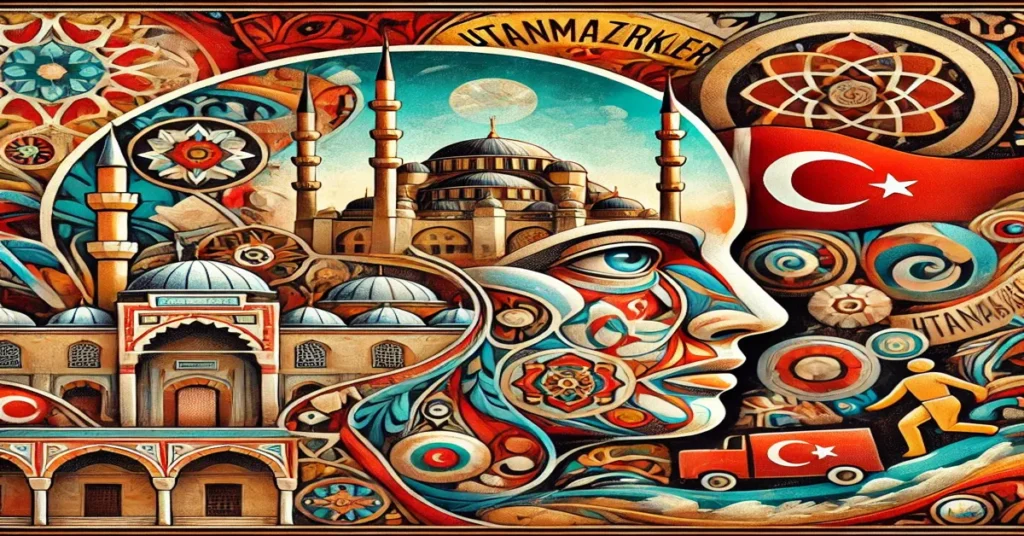The term Utanmaztürkler, which can be translated to “shameless Turks” in English, carries a complex history and cultural context. Whether it is used in historical debates, social commentary, or modern discourse, the term reflects underlying tensions, humor, or criticisms within or about Turkish culture and society. In this article, we delve into the origins, significance, and implications of the term Utanmaztürkler, unpacking its layers of meaning and examining its relevance in contemporary discussions.
Understanding the Term: What Does Utanmaztürkler Mean?
At its simplest, the word Utanmaztürkler is composed of two Turkish words:
- Utanmaz, meaning “shameless” or “without shame.”
- Türkler, meaning “Turks.”
When combined, the term “Utanmaztürkler” can be interpreted as “shameless Turks.” Depending on the context, it can be used in a humorous, critical, or derogatory manner. It can reflect self-criticism within Turkish society, external judgments from other cultures, or even satire.
The term is often wielded in different ways:
- Self-Reflection: As a tool for critiquing societal norms or behaviors.
- Humor or Satire: Used in jest to point out contradictions or amusing aspects of Turkish culture.
- Criticism: By outsiders, as a critique of specific actions, policies, or cultural phenomena.
To fully grasp the term, one must understand the cultural, historical, and social dynamics that have shaped its usage.
Historical Context of Utanmaztürkler
1. The Ottoman Era
During the Ottoman Empire, Turkish culture was deeply intertwined with notions of honor, respect, and societal expectations. The concept of “utanmak” (to feel shame) played a significant role in determining acceptable behavior. Actions that went against societal norms were often met with harsh judgment, and terms like “utanmaz” were used to criticize those who deviated from expectations.
2. Post-Ottoman Modernization
With the founding of the Republic of Turkey in 1923, led by Mustafa Kemal Atatürk, there was a strong push toward modernization, secularism, and Westernization. This period saw significant cultural shifts that led to debates about what it meant to be “Turkish.” Some traditionalists criticized modernization efforts as “shameless” departures from Ottoman values, while progressives saw resistance to change as backward.
3. The Term in Modern Usage
In the 20th and 21st centuries, the term Utanmaztürkler has been used to critique or highlight perceived issues within Turkish society, such as:
- Political corruption
- Cultural contradictions
- Economic challenges
- Gender inequality
- Hypocrisy in social or religious norms
The term has also appeared in satire, popular media, and even in debates on Turkish identity, reflecting the diverse ways it resonates with audiences.
Key Themes Associated with Utanmaztürkler
The term “Utanmaztürkler” is tied to several themes that reflect broader societal and cultural issues. These themes include:
1. Self-Criticism
Turkish culture has a rich tradition of humor and self-reflection, often using satire to address societal shortcomings. Utanmaztürkler is a prime example of how Turks use humor to critique their own society.
2. Cultural Contradictions
Turkey is a country where East meets West, blending traditional values with modern aspirations. This cultural duality often leads to contradictions, which are sometimes labeled as “shameless” or hypocritical.
3. Global Perceptions
The term is also used by outsiders to critique Turkey’s actions on the global stage, whether in politics, human rights, or other areas. Such usage can be contentious, reflecting differing perspectives on Turkish identity and policies.
4. Social and Political Satire
Satirical writers, comedians, and social commentators often use Utanmaztürkler to point out absurdities in political or social behavior, making it a tool for social critique.
5. Honor and Shame
Honor and shame are deeply ingrained in Turkish culture. The term Utanmaztürkler plays on this cultural sensitivity, challenging individuals or groups who deviate from societal expectations.
Cultural Significance of Utanmaztürkler
The term’s significance lies in its ability to spark dialogue about societal values, identity, and progress. It acts as a mirror, reflecting the complexities of Turkish culture and society. Below are some ways Utanmaztürkler is culturally significant:
1. A Tool for Humor
Humor is an integral part of Turkish culture, and Utanmaztürkler fits perfectly within this tradition. Whether in stand-up comedy, social media, or everyday conversations, the term is often used to evoke laughter while making a point.
2. A Lens for Identity
The term raises questions about what it means to be Turkish. Is Turkish identity rooted in tradition, modernity, or a mix of both? Utanmaztürkler highlights the tensions between these perspectives.
3. A Vehicle for Critique
By calling out perceived shamelessness, the term provides a way for individuals and groups to critique societal norms, political corruption, or cultural inconsistencies.
4. A Conversation Starter
Utanmaztürkler sparks discussions on topics ranging from ethics and morality to modernization and globalization. It challenges people to think critically about their society and their role within it.
Modern Uses of Utanmaztürkler
The term Utanmaztürkler has found its way into various modern contexts, including:
1. Social Media
Social platforms like Twitter, Instagram, and TikTok have amplified the use of Utanmaztürkler. It’s often used in hashtags, memes, and viral videos to comment on current events or societal issues.
2. Comedy and Satire
Turkish comedians and satirists frequently incorporate Utanmaztürkler into their routines, using it to highlight the absurdities of modern life.
3. Political Discourse
In political debates, Utanmaztürkler is sometimes used to critique politicians, policies, or societal trends that are seen as corrupt or hypocritical.
4. Popular Culture
The term has appeared in literature, television shows, and movies, often as a way to underscore themes of morality, ethics, or cultural identity.
Criticisms and Controversies
While Utanmaztürkler can be a powerful tool for critique and humor, it is not without its controversies:
1. Perceived Insult
The term’s direct translation as “shameless Turks” can be seen as derogatory, especially when used by outsiders or in a negative context.
2. Misinterpretation
The term’s humor and satire can sometimes be misunderstood, leading to unnecessary conflicts or debates.
3. Stereotyping
Using Utanmaztürkler in a blanket manner risks reinforcing stereotypes about Turkish culture or people.
How Utanmaztürkler Reflects Broader Trends
The use of Utanmaztürkler is not unique to Turkey. Many cultures have similar terms that blend humor, critique, and identity. For example:
- In Japan, “honne” and “tatemae” reflect the duality of societal expectations versus personal feelings.
- In America, terms like “redneck” or “yuppie” are used to comment on specific cultural behaviors.
Utanmaztürkler fits within this global trend of using language as a way to critique and explore identity.
Lessons from Utanmaztürkler
The term Utanmaztürkler offers several takeaways for those looking to understand Turkish culture and society:
- Embrace Complexity: Turkish identity is multifaceted, blending tradition and modernity. Understanding Utanmaztürkler requires acknowledging this complexity.
- Value Self-Reflection: The term demonstrates the importance of self-critique in fostering growth and progress.
- Use Humor Wisely: Humor can be a powerful tool for critique, but it must be used thoughtfully to avoid misunderstandings.
- Engage in Dialogue: Utanmaztürkler encourages discussions about ethics, identity, and societal values, which are essential for cultural evolution.
Conclusion
Utanmaztürkler is more than just a term—it is a lens through which we can explore Turkish culture, identity, and societal values. Whether used in humor, critique, or self-reflection, it reveals the complexities and contradictions that make Turkish society unique. By understanding the term’s origins, themes, and modern applications, we can gain a deeper appreciation for the richness of Turkish culture and the power of language to spark meaningful conversations.
FAQs About Utanmaztürkler
1. What does Utanmaztürkler mean?
Utanmaztürkler translates to “shameless Turks” and is often used in humor, critique, or commentary about Turkish society.
2. Is Utanmaztürkler a derogatory term?
It depends on the context. While it can be used derogatorily, it is often employed humorously or satirically within Turkish culture.
3. Why is the term significant?
Utanmaztürkler highlights themes of identity, societal critique, and cultural contradictions, making it a powerful tool for self-reflection and dialogue.
4. Where is Utanmaztürkler commonly used?
The term is popular in social media, comedy, political discourse, and popular culture, often sparking discussions on societal issues.
5. How does Utanmaztürkler reflect Turkish culture?
The term reflects Turkish culture’s blend of humor, critique, and sensitivity to concepts of honor and shame.
6. Can non-Turks use the term?
While non-Turks can use the term, it’s important to understand its cultural nuances and potential to be perceived as offensive if misused.







